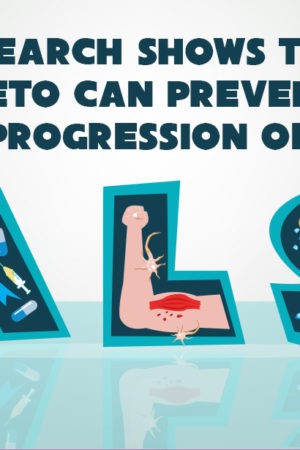New research has promising results for patients with metabolic disorders. These disorders are often fatal from the lack of energy production. A lifestyle change to the ketogenic diet provides hope to these patients.
Oxidative Phosphorylation and Metabolism
Mitochondrial diseases are typically fatal and arise from defects in something called oxidative phosphorylation. Oxidative phosphorylation, to keep it simple, is just a series of energy transfers during metabolism. Mitochondria is where this process occurs. They are small organs within your cells that are critical to energy production.
POI: The Protein of Interest
A protein associated with defective oxidative phosphorylation is called MTO1 or Mitochondrial tRNA Translation Optimization 1. All you need to know is that it’s a protein conserved through evolution (it hasn’t changed much between generations) and is expressed in tissues that use a lot of energy. Specifically linked to MTO1 deficiency is hypertrophic cardiomyopathy. Patients with hypertrophic cardiomyopathy suffer from shortness of breath, chest pain, or abnormal heart rhythms.1
MTO1 Deficiency Studied
In a study by O’Byrne et. al., 35 patients with MTO1 deficiency were identified.2 Symptoms included seizures, developmental delay, low muscle tone, high levels of lactate (produced during normal metabolism), and the deficiency of complex I and IV (protein complexes responsible for energy production at the mitochondria).
Ketogenic Success
In the treatment of patients with a ketogenic diet, the research team gathered some interesting results. First of all, lactate levels normalized, motor development improved, cardiomyopathy was resolved and seizures were prevented.
PDC Deficiency and Ketosis
In a similar deficiency called PDC (pyruvate dehydrogenase complex) deficiency, lactate levels increase, and energy production decreases. This occurs because the end product of glycolysis, pyruvate, is not broken down in a PDC deficiency. Glycolysis is the first part of your glucose metabolism. Pyruvate is just an intermediate molecule that would normally proceed in the process of energy production. So, without it, your cells wouldn’t get any energy. Don’t worry! Ketosis is here to save the day! The ketogenic diet is characterized by a lack of glucose consumption. In other words, if you don’t eat glucose, then it doesn’t even matter if you have a PDC deficiency because your body is going to use fatty acids for energy instead of glucose.
How Keto Helps
Sofou et al took this knowledge and applied it to the study of pediatric patients with PDC deficiency.3 They found out a number of things. First of all, PDC-deficient patients on a ketogenic diet experienced decreased accounts of epileptic seizures, increased muscle tone, and decreased sleep disturbances. Second, they found that motor skills improved as well as speech ability and behavioral/social functioning.
Keeps Getting Better
It keeps getting better. Lactate levels also improved but only through continued ketogenic diet treatment. In other words, the most effective way to rebound from PDC deficiency is to maintain the ketogenic diet. This study indicates that if such lifestyle change were to occur in these patients, further metabolic damage to the brain would be prevented, occurrences of seizures would decline, energy production would increase, muscle tone would improve, and sleep disturbances would decrease.
The Big Picture
The ketogenic diet specializes in altering your metabolic pathway. It relieves your body of a dependence on glucose (carbs) for energy. This is particularly useful in disorders that arise as a result of an inability to metabolize glucose. If this applies to you, give keto a shot!
NUTRITIONAL DISCLAIMER
The content on this website should not be taken as medical advice and you should ALWAYS consult with your doctor before starting any diet or exercise program. We provide nutritional data for our recipes as a courtesy to our readers. We use Total Keto Diet app software to calculate the nutrition and we remove fiber and sugar alcohols, like erythritol, from the total carbohydrate count to get to the net carb count, as they do not affect your blood glucose levels. You should independently calculate nutritional information on your own and not rely on our data. The website or content herein is not intended to cure, prevent, diagnose or treat any disease. This website shall not be liable for adverse reactions or any other outcome resulting from the use of recipes or recommendations on the Website or actions you take as a result. Any action you take is strictly at your own risk.
- Study Says Ketogenic Diet Can Improve Sleep - May 9, 2018
- New Research Shows How to Live Longer with Keto Diet - May 8, 2018
- Studies Examine How Keto Affects Immunotherapy Cancer Treatments - May 1, 2018































